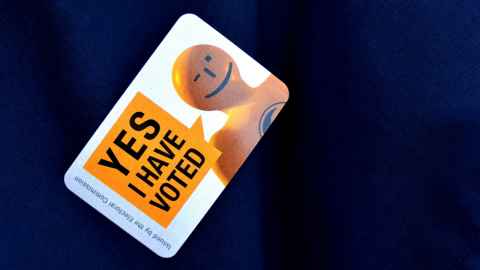To hold our politicians to account, we need to understand what they’re promising
21 September 2023
In the US, the Congressional Budget Office scores each party’s economic policies and points out whether they stack up or not. Ananish Chaudhuri asks why we don’t have something similar here.

OPINION: Here we go again: another election, another kerfuffle over tax or spending cuts.
Clearly there are anomalies in National’s tax plan, although I’m not as opposed to their tax cuts as others.
As my University of Auckland colleague Robert MacCulloch recently pointed out, New Zealand will record one of the lowest GDP growth rates in the world in 2024. As he further points out, if net migration is running at 100,000 or 2 percent of population, while GDP grows by just about 1 percent, this means that per capita GDP is declining.
This decline in per capita GDP has implications in terms of wellbeing, quality of life, unemployment, and indeed life expectancy.
Therefore, if the incoming government does plan to reduce government spending ‒ and it is highly likely that if we end up getting a National/ACT government, then ACT will insist on this ‒ such reductions will add to our economic woes.
One way to counter any potential slowdown in economic activity from reductions in government spending will be to provide tax cuts to stimulate consumer spending to make up for the shortfall.
Of course, such tax cuts may add to inflationary pressures. But again, as MacCulloch has shown in his research, unemployment comes at a social cost to wellbeing as well, and therefore one needs to balance the trade-off between higher inflation and higher unemployment.
But my problem goes beyond the immediacy of current policy. As far as I can make out, a lot of the plans submitted by our political parties rely on back-of-the-envelope calculations. How can this be?

Imagine if you boarded a plane and the pilot said: “Folks, shortly we will depart for Los Angeles. Our rough calculations suggest that we will get reasonably close to our destination. You should be able to walk the rest of the way.”
Or suppose scientists at Nasa said: “Our back-of-the-envelope calculations suggest that our rockets will be able to get close enough to the Moon and we are hoping we will be able to land there.”
If this is not acceptable, then why is it acceptable for political parties to say “we’ll cut a billion here, spend a billion there and our rough calculations suggest that we will be all right”?
In the United States, for instance, the non-partisan Congressional Budget Office scores each party’s economic policies and points out whether they stack up or not. Surely we should be able to assign this task to a Crown entity to tell us the same.
I’m a trained economist and much of the time I have little idea as to whether a plan makes sense or not. This is because none of us know the details of such budget planning and the assumptions that go into them.
But there is no reason for this to be a black box. Surely each party has access to enough funds to hire some independent experts who can assess their plans.
These plans and the assumptions underlying them should be accessible to anyone who wishes to check the numbers. This type of peer review is part and parcel of the academic process and there is absolutely no reason why it cannot be part of our public discourse.
Actually, there is little need to hire an expensive external agency to undertake such examinations. Economics departments at our universities are full of talented people who will be willing to do this as part of their service obligations and in order to make a difference to public policy; pies, sausage rolls and taxi fares might even be enough.
There’s absolutely no reason why we should continue to accept such shoddy policy-making. Get some trained people to look at the numbers. Let the public know who was responsible. Make them available to those who ask questions so that they can carry out their own investigations.
My wife is a specialist in infectious diseases and often makes fun of me by saying: “Calm down, what you do is not that important; no one is dying under your watch.”
But she’s wrong. It may not happen right before our eyes, but faulty economic policies can and do cost human lives. We need our politicians and policy-makers to do much better.
Ananish Chaudhuri is professor of economics at the University of Auckland and author of the forthcoming book Economics: A Global Introduction.
This article reflects the opinion of the author and not necessarily the views of Waipapa Taumata Rau University of Auckland.
It was first published by Stuff
Media contact
Sophie Boladeras | Media adviser
M: 022 4600 388
E: sophie.boladeras@auckland.ac.nz